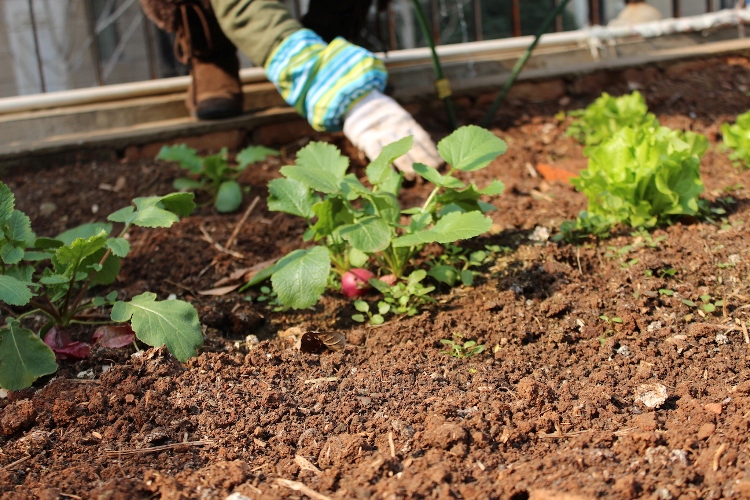By Ben Xie
How do you feel when seeing food scandals in China popping up as regular front-page stories? Scared? Angry? Hopeless?
I feel scared and angry, but I have hope. The Chinese government has become more determined to ensure food safety. While things are happening at the governmental level in terms of new legislation and law enforcement, there are small things we individuals can and should do to improve food safety. We can read food labels, we can talk to the people we buy our food from, we can pay visits to the local farms that supply the stores where we do our grocery shopping.
However, nothing can provide us more perspective than actually participating in the growing of food. This is a wonderful idea, but it’s also a very luxurious dream for people living in an urban area like Shanghai. However, non-profit organizations such as GoodtoChina and Roots and Shoots have established farms in the city to provide land for people who want to grow their own fruits and vegetables. As a regular volunteer at one of GoodtoChina’s urban farms, I encourage people to drop by and see what’s growing in the farm. Roots and Shoots has also built several farms in schools to teach young kids about how foods are produced and to show them how to live sustainably.
The scarcity of land also doesn’t stop creative and resourceful individuals, who create spaces in their homes or on their balconies for farming. This embodies the concept of “0 miles” (zero distance between the farm and the dining table). Most balcony farms follow traditional practices, using soil to grow vegetables and fruits in clay pots or even in wooden, Styrofoam or plastic boxes. In fact, all the materials needed to set up a balcony farm can be easily purchased from Taobao.
For people who have the DIY spirit and prefer a cleaner, laborsaving method of farming at home, window farming is a great option. I have been working on a vertical hydroponic farming system in my own apartment, using recycled materials, including water bottles and cardboard boxes. This system requires very little of the surroundings; a window with sunlight is enough. Furthermore, its vertical design allows it to take up very little space. Plants grow in clay balls, not soil, in this hydroponic system; therefore, there are minimal concerns about plant diseases associated with soil. Water with added nutrients is pumped to a high place, and then trickles down due to gravity, nourishing the plants along the way. Since nutrients are easily accessed by the plants, the plants can grow faster and have a shorter growing cycle.
Admittedly, the harvest from these small-scale farming practices is not enough to meet the demand of the prospective grower, but it provides a solid foundation to establish communities, as farming creates a fundamental connection between people. It educates people about a lifestyle that is in harmony with nature and raises people’s awareness that safe and high-quality foods should be a guarantee, not a luxury. These people are then more likely to take action to ensure that the government, food manufacturers and the local community work together to elevate food production standards and protect the environment.
// Ben Xie is a Registered Dietitian Nutritionist trained and certified in the US and currently works at JJ-Premier Medical Care (Benjamin.xie7@live.com, 18301949541)
// Check out GoodToChina’s farming projects at www.goodtochina.com, and Roots and Shoots at www.jgi-shanghai.org


















